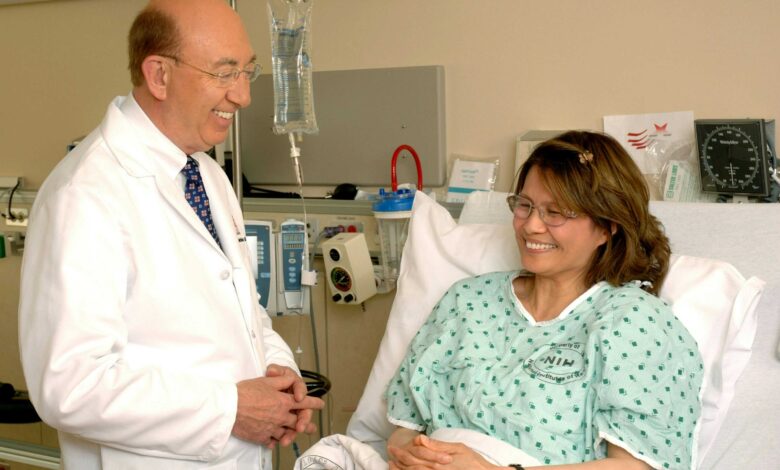The Importance of Early Detection: How Regular Screenings Can Save Lives

Understanding Early Detection
Early detection of diseases is paramount as it significantly enhances the likelihood of successful treatment and survival. Many conditions, including cancer, cardiovascular diseases, and diabetes, can progress quietly without noticeable symptoms. Detecting these diseases early through regular screenings allows for timely intervention, which can prevent complications and improve outcomes.
The Role of Screenings in Health Management
Screenings are designed to find diseases in their earliest stages, often before any symptoms are noticeable. Conditions like high blood pressure, high cholesterol, and certain cancers can develop silently, causing significant harm before one becomes aware of their existence. Regular screenings empower individuals to take proactive steps in managing their health, often leading to better health outcomes and lower long-term healthcare costs.
The Impact of Colorectal Cancer
Colorectal cancer is a prime example of a disease where early detection can make a profound difference. Colorectal cancer often begins as noncancerous polyps in the colon or rectum, which can develop into cancer over time. Regular diagnostic colorectal cancer screening colonoscopy exams help identify and remove these polyps before they progress, thereby preventing cancer from developing.
Colorectal cancer screenings, particularly colonoscopies, are crucial because they can save lives by catching abnormalities early. Regular screenings starting at age 45, or earlier for those with higher risk factors, can lead to early detection and removal of precancerous polyps, significantly reducing the risk of developing cancer.
Importance of a Diagnostic Colorectal Cancer Screening Colonoscopy Exam
A colonoscopy exam is the gold-standard screening method for detecting colorectal cancer. During this procedure, doctors can inspect the entire colon and rectum using a flexible camera, allowing them to spot and remove polyps. According to the American Cancer Society, individuals at average risk should start regular screenings at age 45.
In addition to identifying and removing polyps, colonoscopies can help diagnose other gastrointestinal issues that might require medical attention. The procedure is typically well-tolerated and is a powerful tool in preventing colorectal cancer. By removing polyps before they turn cancerous, colonoscopies contribute significantly to reducing the incidence and mortality associated with colorectal cancer.
Other Types of Screenings
Regular screenings are not limited to colorectal cancer; they span a variety of conditions that can benefit from early detection. Some essential screenings include:
- Mammograms: Crucial for detecting breast cancer, mammograms can find tumors that are too small to be felt. Regular mammograms starting at age 40 are recommended for women at average risk, but those with higher risk factors may need to start earlier.
- Pap smears and HPV tests: Critical for detecting cervical cancer and pre-cancerous changes. Women should begin Pap smears at age 21 and continue through age 65, combined with HPV testing if applicable.
- Blood pressure checks: Important for diagnosing hypertension, a risk factor for heart disease and stroke. Adults should have their blood pressure checked at least once every two years, or more frequently if they have risk factors for cardiovascular disease.
- Cholesterol tests: Used to identify high cholesterol levels that can lead to heart disease. Adults should have their cholesterol levels checked every 4-6 years, starting at age 20, though more frequent testing may be needed for those with elevated risk.
- Blood glucose tests: Vital for early detection of diabetes or pre-diabetes. Adults over 45 should have their blood glucose checked every three years, with more frequent testing for those with risk factors for diabetes.
By maintaining regular screening schedules, individuals can keep track of their health and address any issues promptly, paving the way for better long-term health and well-being.
Overcoming Barriers to Screening
Despite the proven benefits, many people neglect regular screenings due to fear, lack of awareness, or access issues. Education and proactive healthcare policies can help overcome these barriers. Informing individuals about the importance of screenings and offering accessible, affordable options can encourage more people to take charge of their health.
Fear of the unknown, concerns about discomfort, and the costs associated with screenings can deter individuals from seeking necessary tests. Public health campaigns and community outreach programs play a vital role in educating the public about the importance of early detection and addressing common misconceptions. Additionally, healthcare policies that reduce financial barriers, such as insurance coverage for preventive screenings, can make a significant difference.
The Role of Healthcare Providers
Healthcare providers play a crucial role in promoting regular screenings. They should educate patients about the importance of early detection and encourage them to adhere to their screening schedules. Moreover, providers can help alleviate patients’ concerns by explaining procedures and addressing any anxieties about the process.
Building a trusting relationship between patients and healthcare providers can enhance screening rates. Providers should take the time to discuss the benefits and procedures of screenings, addressing any concerns or questions patients may have. Personalized recommendations based on individual risk factors and medical history can also encourage adherence to screening schedules.
Taking control of your health through early detection can truly save lives. Make sure to schedule your regular screenings and consult with your healthcare provider to stay on top of your health. By prioritizing these preventative measures, you can enjoy a healthier, longer life and minimize the risk of serious health conditions.



